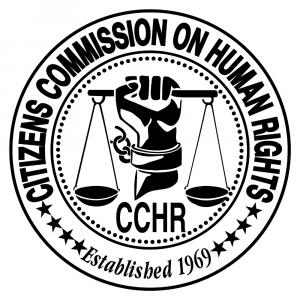
A resolution by the Parliamentary Assembly of the Council of Europe to stop confining people with disabilities to institutions advances the movement to replace coercive mental health practices with voluntary, holistic approaches.
The action follows the World Health Organization’s call for forced mental health practices to be replaced with voluntary, holistic approaches.
— Reina de Bruijn-Wezeman, Parliamentary Assembly, Council of Europe
WASHINGTON, DC, US, May 12, 2022 /EINPresswire.com/ — Europe’s leading human rights assembly has adopted a resolution calling for an end to confining people with physical and mental disabilities to institutions, action that further advances the movement to end coercive practices in the field of mental health.
The resolution on deinstitutionalization of disabled persons by the Parliamentary Assembly of the Council of Europe, adopted as an important step in restoring human rights in Europe, urges the Council’s 46 member states to take action against forced commitments to institutions.
Ms. Reina de Bruijn-Wezeman, from the Assembly committee that led a 2-year investigation of institutionalization, said during presentation of the resolution that committing patients to institutions “puts them at risk of systemic and individual human rights violations, and many experience physical, mental and sexual violence.”
This call to action against forced institutionalization is in keeping with the protection of the rights of people with disabilities laid out by the United Nations in its Convention on the Rights of Persons with Disabilities (CRPD), adopted in 2006. Several rights in the CRPD require an end to coercive practices, which applies to forced psychiatric hospitalization and treatment, seclusion and restraint, and the administering of psychiatric drugs, electronconvulsive therapy (ECT) and psychosurgery without informed consent.
In a major report issued in June 2021, the World Health Organization (WHO) called on United Nation member nations, including the United States, to take action to end coercive mental health practices, which “are pervasive and are increasingly used in [mental health] services in countries around the world, despite the lack of evidence that they offer any benefits, and the significant evidence that they lead to physical and pyschological harm and even death.”
“People subjected to coercive practices report feelings of dehumanization, disempowerment, being disrepected and disengaged from decisions on issues affecting them,” according to the report. “Many experience it as a form of trauma or re-traumatization leading to a worsening of their condition and increased experiences of distress.”
The Citizens Commission on Human Rights (CCHR), an international mental health watchdog organization, has been a leader in the fight against coercive and abusive psychiatric practices worldwide. In 1969, CCHR issued a Mental Health Declaration of Human Rights that laid out fundamental human rights in the field of mental health to ensure the right to one’s own mind, including the right to choose one’s own mental health treatment, the right to full disclosure of the risks of harm from any drugs, therapy or procedures proposed as mental health treatment, and the right to be free from forced mental health treatment.
CCHR’s co-founder, the late psychiatrist and humanitarian Thomas M. Szasz, a professor of psychiatry considered by many academics to be modern-day psychiatry’s most authoritative critic, wrote: “The most important deprivation of human and constitutional rights inflicted upon persons said to be mentally ill is involuntary mental hospitalization.”
For more than 50 years, CCHR has continued its advocacy to eradicate abuses in the field of mental health, including the abusive use of involuntary commitments, seclusion and restraints, psychiatric drugs, and electroconvulsive therapy.
The Citizens Commission on Human Rights was founded in 1969 by members of the Church of Scientology and Dr. Szasz to restore human rights and dignity to the field of mental health. Since then, CCHR has been instrumental in obtaining 228 laws against psychiatric abuses and violations of human rights worldwide.
The CCHR National Affairs Office in Washington, DC, has advocated for mental health rights and protections at the state and federal level. The CCHR traveling exhibit, which has toured 441 major cities around the world to raise awareness on the history to the present day of abusive and racist psychiatric practices, has been displayed at the Congressional Black Caucus Foundation Annual Legislative Conference in Washington, DC, and at other locations.
Anne Goedeke
Citizens Commission on Human Rights, National Affairs Office
+1 202-349-9267
email us here
Visit us on social media:
Facebook
CCHR: What We Believe
![]()
Lifestyle - Reality Syndicate Viewers originally published at Lifestyle - Reality Syndicate Viewers


 ,
,



